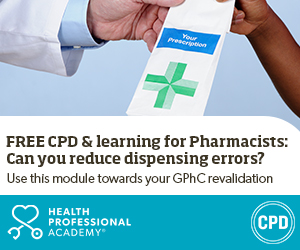People in the UK are also doing their best to prevent the spread of common illnesses since the pandemic.
Brits are increasing relying on over-the-counter (OTC) medicines to prevent or treat common ailments, as the ‘care at home trend’ has become prominent amongst UK households following the COVID-19 pandemic.
Almost three-quarters of Brits (71 per cent) now choose to treat minor ailments at home rather than visit their GP or pharmacist, according to new research.
The self-care message promoted by the government and NHS during the pandemic has led to a new generation of consumers who continue to take control of their own health and treat minor ailments themselves.
Additionally, the research, commissioned by Lanes Health, revealed that public awareness about preventative treatment has increased, with 70 per cent of Brits claiming that they do their best to prevent the spread of common illnesses since the pandemic.
When buying OTC medicines, consumers commonly choose brands that they know works (43 per cent), trust (39 per cent), or have always used (36 per cent).
Familiarity is the most important aspect for older people, with 48 per cent of 65+ year olds stating the main reason they buy a product is because they’ve always used it, compared to only 24 per cent of 18–24-year-olds saying the same.
Martin Last, Director General, Health Food Manufacturers’ Association, said brands can take real advantage of this new consumer health trend.
Jon Groves, Executive Charmain of Lanes Health, has shared five tips on how OTC brands can ensure they remain relevant in an ever-changing sector.
- Invest in brands consumers know and love
- Listen to your consumers and respond appropriately to their needs
- Market more than the product features, sell the benefits.
- Treat consumers appropriately
- Move with the landscape and ensure innovation.
Michelle Riddalls, CEO at PAGB, the consumer healthcare association, highlighted the importance of increasing consumers’ confidence in using OTC medicines for self-treatable conditions to reduce the growing pressures in primary care.
A recent PAGB report on consumer attitudes found that education is the key to increasing self-care, with 83 per cent respondents saying they need more health education to encourage consumers to take a more proactive approach.
Michelle added that the consumer healthcare industry must continue to maintain its “high standards of self-regulation and product promotion” to educate consumers and support them with the most effective treatments and advice possible.







